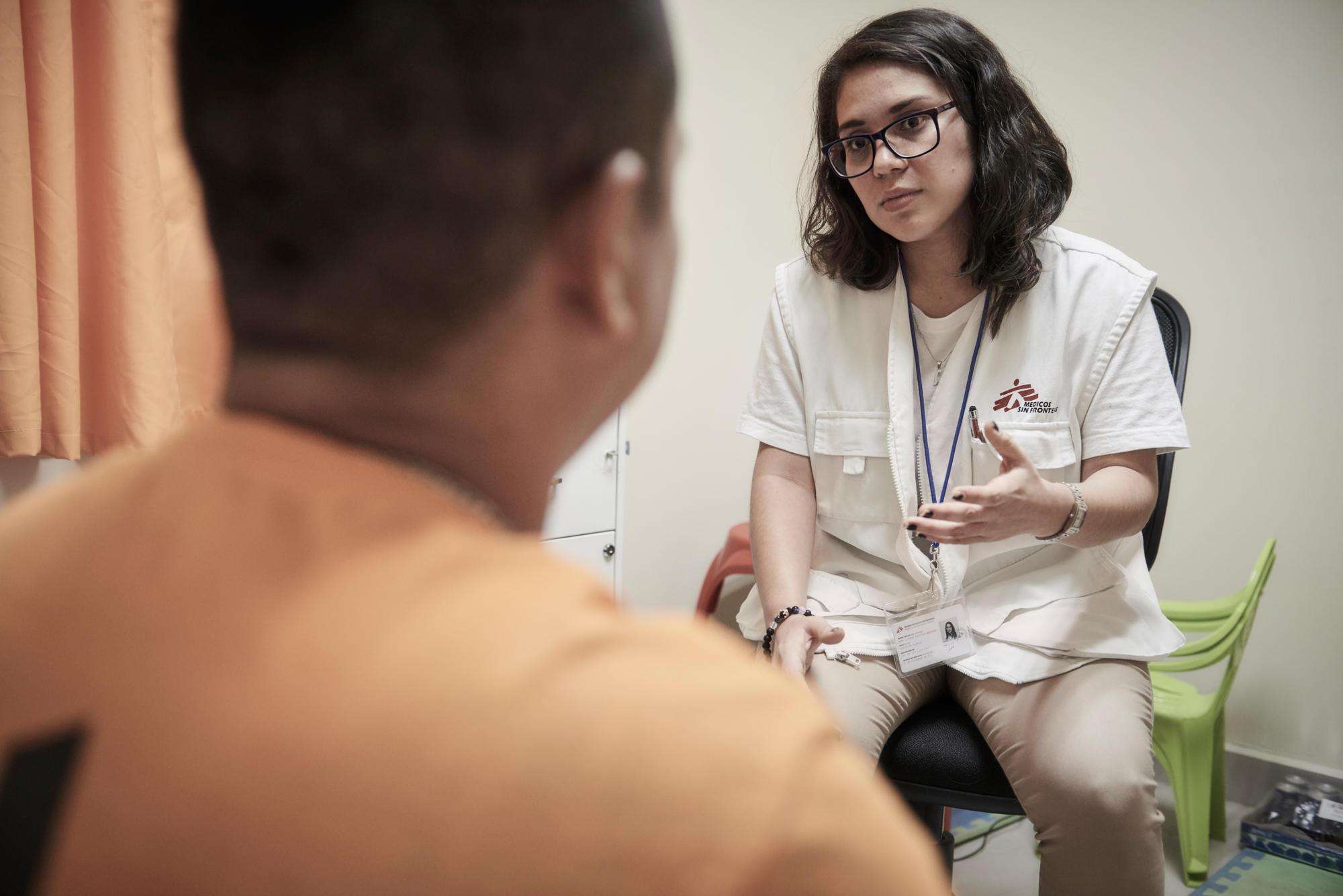Gladys* walks slowly, talks quietly, and seems sick. There are days when she expresses hope about finding her grandchildren, son, and daughter-in-law, and other days when she plunges into deep despair over their disappearance. In the five years since she last saw them she has had trouble eating or sleeping, and her search for them—still fruitless—has left her exhausted.
This mother and grandmother is one of the many patients, mostly women, receiving treatment from Doctors Without Borders/Médecins Sans Frontières (MSF) teams in the city of Reynosa, Tamaulipas state, in northern Mexico. Using a model of comprehensive care that includes medical, psychological, and social services, we care for survivors of violence—including sexual violence—in an area with one of the largest numbers of forced disappearances in Mexico.
“The number of people who go missing is high because of the context of violence that exists in the border area due to clashes between cartels and their confrontations with the military,” says Juan Carlos Arteaga, mental health activity manager for MSF in Mexico and Honduras. When violence in the area worsened, MSF identified a need to intervene, and, at the end of 2016, opened a project with a specific focus on mental health. The violence people live with every day in Reynosa “leaves a lot of psychological scars,” according to Arteaga.
Improving quality of life
“Our psychological teams in Reynosa regularly identify patients like Gladys who have suffered the disappearance of a family member,” says Nora Valdivia, an MSF clinical psychologist. “These are people who have an urgent need to speak to someone to help express their pain.”

Often these patients are tormented by unresolved grief and uncertainty about their loved ones. But, at the same time, they’re afraid to open up about their experiences for fear of retaliation at the hands of criminal groups. Therefore, one of the main challenges MSF faces is identifying and reaching people who need care. “If forced disappearance and its consequences were [considered] a health problem, many more cases would be visible,” says Nora. Instead, many patients go months or years in anguish before seeking help. By the time Gladys arrived at her first MSF consultation she was suffering from chronic depression. “After so many years, she was resigned to never finding her son and daughter-in-law—but she held out hope for her grandchildren,” says Valdivia.
She and Gladys began an arduous process of therapy. “At the beginning it was complicated,” says Valdivia. “She had many emotions, a lot of pain, and she cried a lot. But as we worked together each session, she learned to manage her thoughts and regained her focus on herself, the will to live, and her physical health. She became less exhausted and could finally sleep.”
“A daily torture”
According to Valdivia, trouble sleeping, a lack of appetite, and feelings of discouragement and deep sadness are common symptoms among those who have lost family members. But in Reynosa, where violence is both pervasive and normalized, many people don’t recognize the need to seek care. “It's like a buried pain,” Valdivia says. “It’s a daily torture, because people don’t know what happened to their loved ones. They don’t even know if they’re still alive. With the disappearance of their relatives, many feel as if they too have disappeared.”
Provision of care is further complicated by the stigma surrounding mental illness and psychological care. “There is a lack of education in Mexico about what psychology really does, and about the importance of dealing with emotional situations that wear us down,” says Valdivia. To overcome these obstacles, MSF carries out community work in Reynosa to promote mental health services and conducts psychological education activities. From January to June 2018, teams reached around 32,800 people, performing 1,732 mental health consultations and 1,347 medical consultations.
Therapy sessions help to improve patients’ sleep and appetite. Anxiety decreases, along with the other symptoms, as their quality of life improves. But even comprehensive care cannot provide the closure many patients need. “Although sessions do reduce the symptoms, we handle patients as if they have a long-standing chronic illness,” explains Arteaga. “When they’re not certain about the fate of their loved ones, patients cannot have a complete recovery. The disappearance is like torture. It is something that will be continuously with them until it’s resolved, one way or another. For closure, they need to find out what happened to their relative, whether they’re dead or alive.”
*This patient's name was changed to protect her anonymity.




